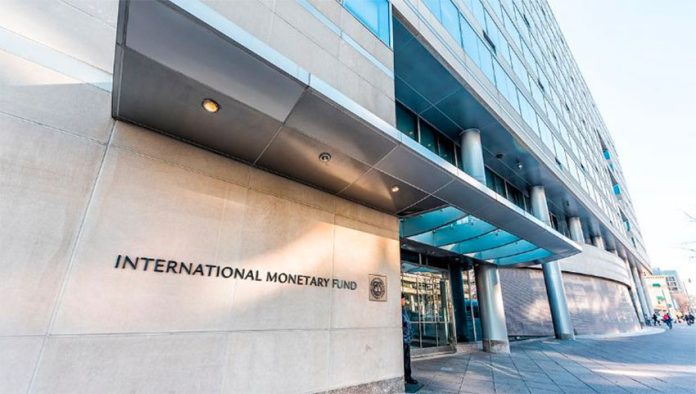The outlook for the economy remains pessimistic as far as the International Monetary Fund (IMF) is concerned: it has cut its growth forecasts for both 2020 and 2021.
The organization said in its World Economic Outlook (WEO) Update on Monday that it expects Mexico’s GDP to grow just 1% this year, a reduction of 0.3% compared to October.
The economy will pick up in 2021 to grow by 1.6%, the IMF predicted. However, that forecast is also 0.3% lower than the fund’s October forecast.
The IMF said the weak economic performance expected in Mexico was a factor in its decision to cut its growth forecasts for the wider region.
In Latin America, growth is projected to recover from an estimated 0.1% in 2019 to 1.6% in 2020 and 2.3% in 2021 (0.2 and 0.1 percentage points weaker respectively than in the October WEO). The revisions are due to a downgrade to Mexico’s growth prospects in 2020-21, continued weak investment and a sizable markdown in the growth forecast for Chile, affected by social unrest.
The IMF’s revised outlook comes after the Mexican economy stagnated in 2019, the first full year of the new federal government.
The national statistics agency Inegi reported in November that revised data showed that the economy contracted in both the first and second quarters of last year, meaning that Mexico entered a light recession. Growth of just 0.01% followed in the third quarter (fourth quarter data has not yet been published.)
The figures are a far cry from President López Obrador’s stated goal of average 4% annual growth during his six-year term. The leaders of two business groups blamed the government last week for the weak growth, stating its “hostile discourse” and policy changes were scaring away foreign investment.
However, Mexico’s richest man, Carlos Slim, expressed a different view in late November, claiming that the government has laid the foundations for greater investment and growth.
United Nations statistics show that foreign direct investment (FDI) in Mexico did in fact grow by 3% last year to reach US $35 billion.
The UN Conference on Trade and Development said in a report that the new North American free trade agreement – first signed in November 2018 before Mexico, the United States and Canada agreed on a revised version late last year – helped attract business to Mexico.
However, National Autonomous University professor Miguel González Ibarra said that more than half of last year’s FDI was reinvestment of profits by companies already operating in Mexico rather than investment in new projects.
He said the United States-Mexico-Canada Agreement will lead to an increase in new investment but predicted that it won’t have a major impact on economic growth in the short term. Rather, the economy will benefit from the influx of funds in the medium term, González said.
Source: El Economista (sp), El Financiero (sp)
